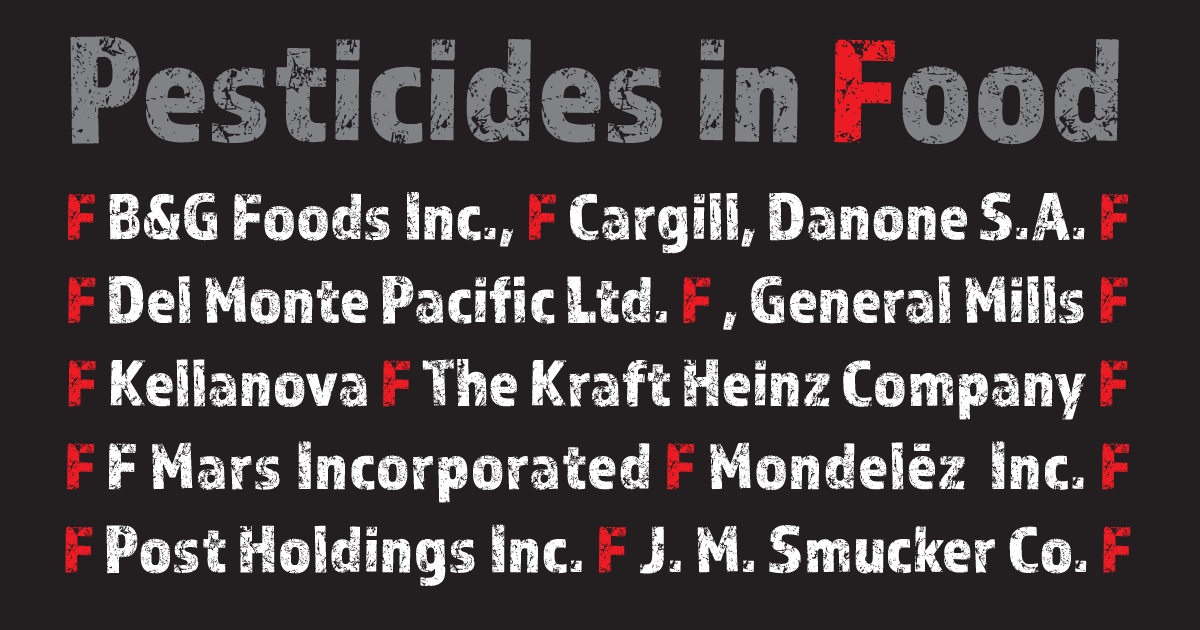
‘PESTICIDES IN THE PANTRY’
Reducing Pesticides in Food: Major Food Manufacturers Earn an F Grade
By Sandee LaMotte, CNN
“Seventeen major food manufacturers earned an average grade of F for their lack of progress in reducing pesticides in the products they sell, according to a new analysis by As You Sow, a nonprofit specializing in shareholder advocacy.
‘Many companies set pesticide reduction goals of 2025 and 2030 that appeal to shareholders,’ said Cailin Dendas, lead author for the report, ‘Pesticides in the Pantry: Transparency & Risk in Food Supply Chains.’
‘Now, we’re looking at the progress companies are making to achieve those goals, and finding little significant movement,’ said Dendas, environmental health program coordinator for the nonprofit.
‘It’s disheartening to see so many bad grades across the board for these major food production companies,’ said Jane Houlihan, research director for Healthy Babies, Bright Futures, an alliance of nonprofits, scientists and donors with a mission of reducing babies’ exposures to neurotoxic chemicals.
‘Studies find the highest amounts of pesticides in some of the most popular foods children eat — berries and apples, for example,’ said Houlihan, who was not involved in the report. ‘Pesticides are also found in breast milk and umbilical cord blood, meaning that exposures start before birth and continue through infancy and beyond.’”
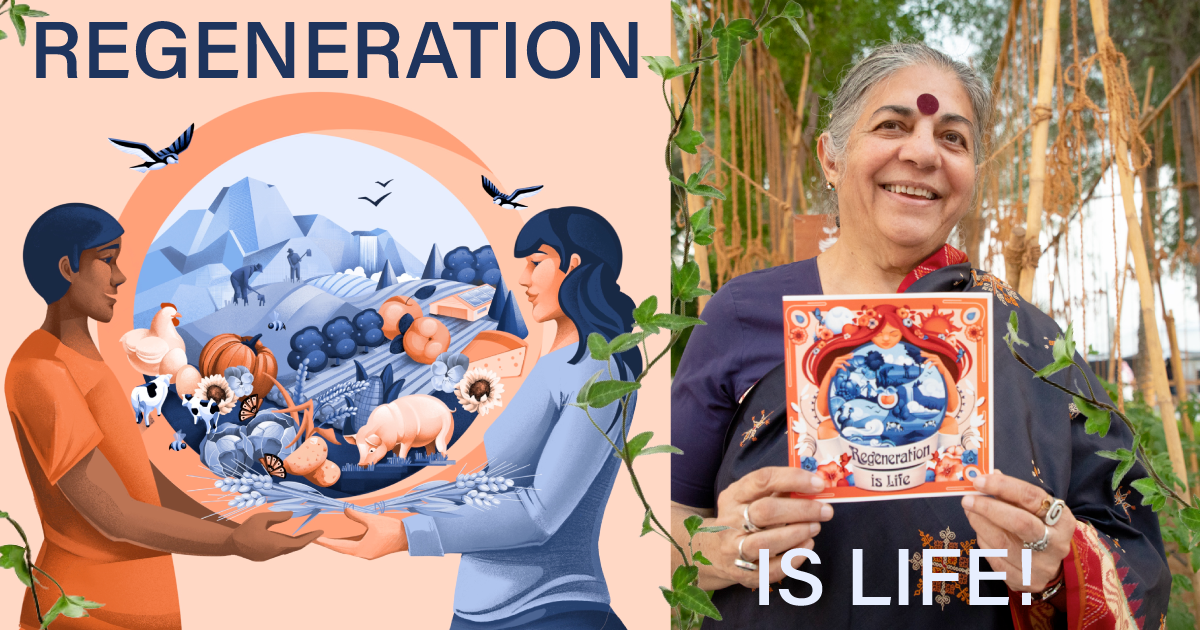
VANDANA SHIVA
Regeneration is Life!
By Navdanya International, with illustrations by Chiara Vercesi.
Watch this beautifully illustrated message of hope and determination.
“On the occasion of the 28th Climate COP, Navdanya International presents ‘Regeneration is Life – An Agroecological Paradigm to Overtake the Climate Crisis’
There are two main paradigms of thinking of ourselves in the world and of our relationship with the Earth. We either think of ourselves as being separate from Nature or as being one and part of it.
The industrial agriculture paradigm, which sees the world as a machine, and not as a self-organized living system, has created devastation on the planet through extraction and exploitation. Together, the ecologically destructive practices of the industrial agriculture paradigm account for 29% of all greenhouse gas emissions (GHG), making the global food system one of the main culprits behind climate change and environmental degradation. Acting as if the world were a machine undermines and eventually destroys living processes and organic systems.
Following our Biodiversity is Life booklet, which showcases the deep interconnections between our health and the health of our ecosystems and planet, this new booklet lays out how, today more than ever we need the agroecological cultures of the world to take the forefront and show us what it means to be rooted in harmony with the Earth. The aim should be to work alongside nature to restore its biodiversity and rejuvenate its natural cycles to produce Real Food. These solutions already exist and are being implemented by local, diverse food communities around the world. Showing us that it is possible to walk a path of living in harmony with nature. We are part of the Earth’s systems, our food is a continuum of health from the ecosystems of the earth. We are deeply and inherently interconnected.
The real solution to the ecological and climate crisis does not lie in creating substitutes for food or expanding the industrial paradigm, but in scaling the initiatives all over the world that are already working on healing our connection with the Earth through care.”
Read more: Regeneration is Life – An Agroecological Paradigm to Overtake the Climate Crisis
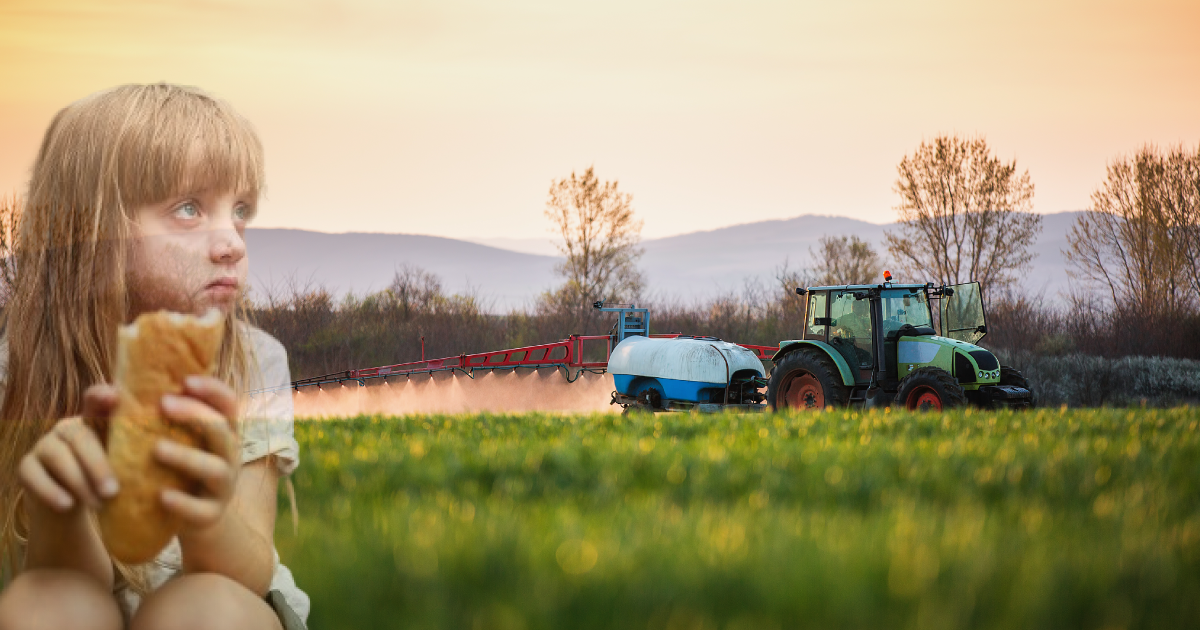
BAN GLYPHOSATE
Wheat Allergies May Instead Be Allergies to Glyphosate
8.9ha TV
“A SCIENTIFIC literature review by Canadian researchers from the University of British Columbia concludes that ‘glyphosate may be a critical environmental trigger in the etiology of several disease states, including celiac disease, inflammatory bowel disease and irritable bowel syndrome’.
‘A Western diet, characterised as high in fat and refined carbohydrates, can also be defined as a product of increased technology and industrialisation.
Modern farmers rely on agrochemicals to meet the needs of a growing population, and these chemicals have shifted the Western diet’s chemical composition.
While the number of individuals choosing to live a wheat-free lifestyle without a celiac disease diagnosis has increased, clinical trials have shown that gluten from wheat is not responsible for causing symptoms in healthy individuals suggesting that something else is inducing symptoms.
The herbicide, glyphosate, is applied to wheat crops before harvest to encourage ripening resulting in higher glyphosate residues in commercial wheat products within North America. Glyphosate inhibits the shikimate pathway, a pathway exclusive to plants and bacteria. Glyphosate’s effect on dysbiosis was not considered when making safety recommendations.
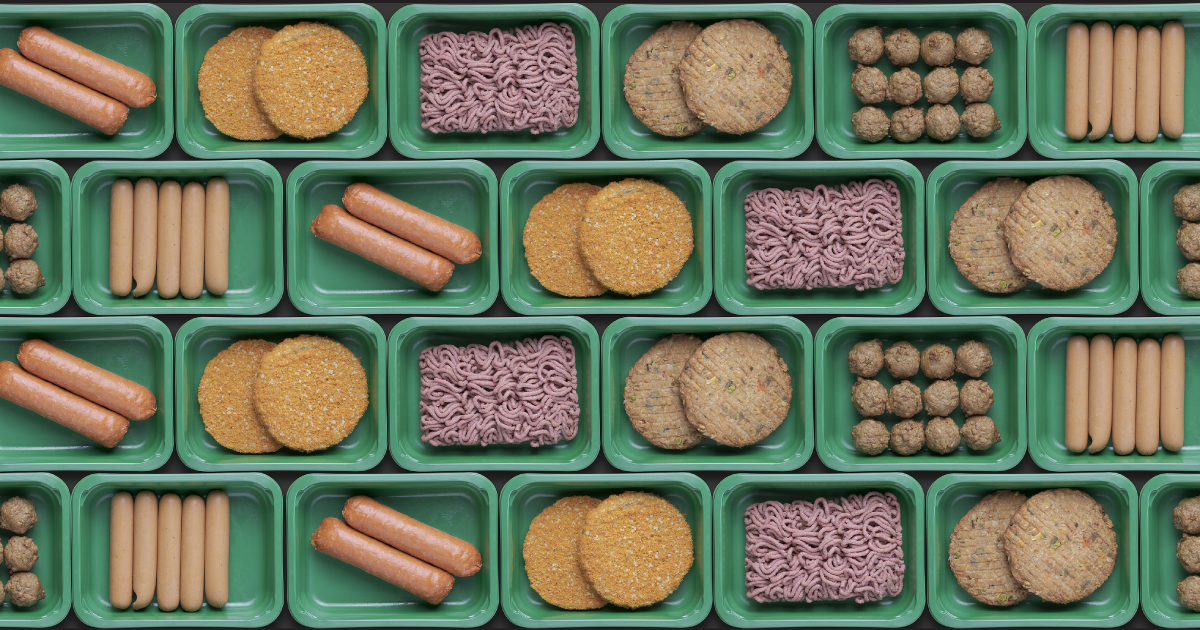
REAL FARMS, NOT FAKE FOOD
Vegan Meat Substitutes Are Often High in Salt and Highly Processed, Warns UN
By Emma Gatten, The Telegraph:
“Plant-based alternative meat products are often highly processed and have too much salt, the UN has said while still urging governments to consider providing more support to the industry.
Vegan substitutes can contribute to significantly reducing the carbon footprint of meat and dairy, especially in richer countries, the UN Environment Programme (UNEP) said.
Animal products account for between 14.5 and 20 per cent of global emissions, from direct methane emissions, feed, changes in land use and energy-intensive global supply chains.
The UN looked at several different alternatives, including lab-grown meat and fermentation-derived products.
Plant-based products, such as those made from soy or pea protein, are among the most popular alternative meat products, often marketed as sausages or burgers.
But the UN cautioned that these products “currently tend to be highly processed and have high amounts of salt”.
It added that the evidence of health impacts from lab-grown meat or fermentation-based products was also limited.
Lab-grown meat is also highly energy intensive, with a study earlier this year finding it could be 25 times more costly for the environment than beef.”
Read more: Vegan Meat Substitutes Are Often High in Salt and Highly Processed, Warns UN

SHOKUIKU
Japanese Parenting with “Shokuiku”: “Eat” and “Grow.”
Yuko Tamura reports for CNBC:
“In 1896, pioneering doctor and pharmacist Sagen Ishizuka coined a Japanese philosophy called ‘shokuiku.’ It is derived from two words that mean ‘eat’ and ‘grow.’
Shokuiku encourages parents and schools to teach kids where their food comes from and how it affects our mind and body. This concept has been an integral part of Japan’s culture, and it’s a big reason why we’re home to some of the world’s healthiest children.
According to UNICEF, among 41 developed countries in the European Union and the OECD, Japan is the only country where fewer than one in five children are overweight.
As a mother raising a young daughter in Japan, here’s what Japanese parents do differently to raise happy and adventurous eaters:
- They implement shokuiku early.
Japanese doctors often encourage expecting mothers to stick to a well-balanced meal style called “ichijū-sansai.” It is centered around a bowl of rice and miso soup, accompanied by a protein-focused dish, and two vegetable sides (like seaweed or mushroom) for adequate vitamins, minerals and fiber.
As kids get older, they start to learn about healthy eating habits. In 2005, the government passed the Basic Act on Shokuiku to promote shokuiku.
Some preschools have kids harvest vegetables to eat for lunch, while in elementary schools, they learn about the farms that produce vegetables, fish and other foods

ENVIRONMENTAL SAFETY
New Research Links Low-Level Lead Exposure to Liver Injury
Analysis by Dr. Joseph Mercola
Story at-a-glance
“A paper presented at the AASLD — The Liver Meeting in November 2023 suggests a link between exposure to environmental toxins, including low levels of lead, and liver scarring that can lead to liver disease and cancer
The researchers found that the number of people with advanced liver fibrosis has risen, and the risk factors varied by race and ethnicity, highlighting the theory that chronic disease may be driven, at least in part, by environmental factors
A second 2023 study found low-level lead exposure was associated with 765 million lost IQ points in children aged 5 and younger and 5.5 million deaths in adults due to cardiovascular disease
Risks are also multigenerational, meaning that exposure during pregnancy can lead to epigenetic changes in DNA methylation patterns in grandchildren. Your first step is to be tested and work with a health care practitioner who is adept at removing lead without causing more harm
Avoid consuming more lead by testing for, and filtering out, lead in your cooking and drinking water; by testing older house paint for lead; and being mindful not to buy or use household products that may contain lead, such as medicine, cosmetics and children’s toys.”
Learn more! New Research Links Low-Level Lead Exposure to Liver Injury
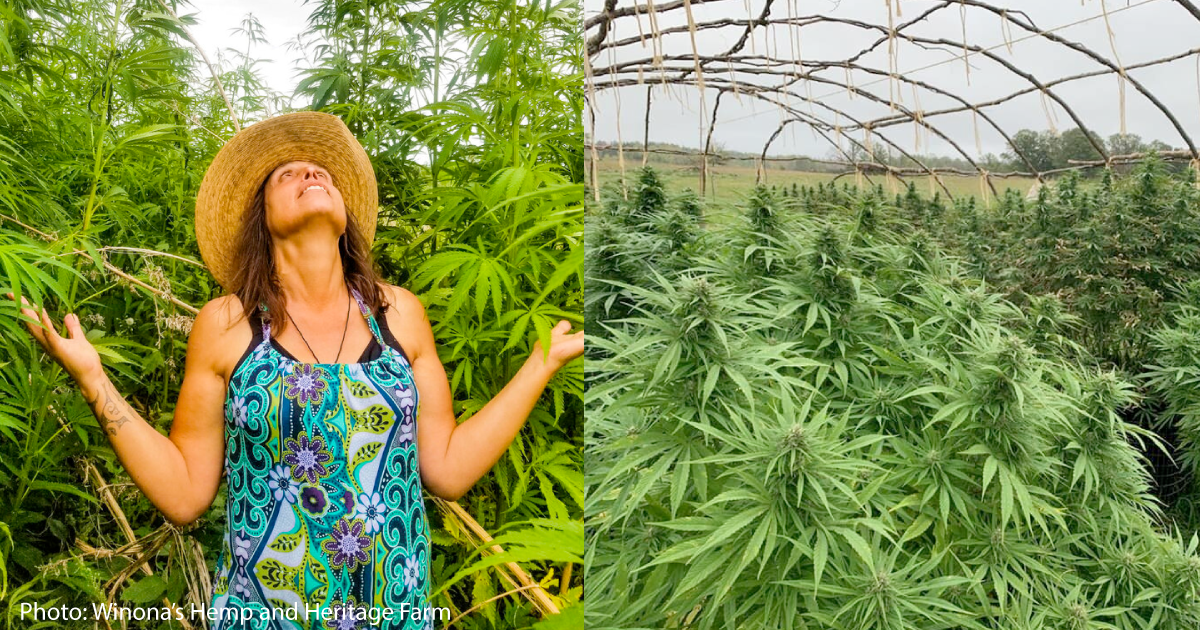
SUSTAINABLE INFRASTRUCTURE
Native ‘Hempsters’ Follow Global Cooperative Example
Talli Nauman writes for Buffalo’s Fire:
“PINE RIDGE, S.D.- A global enterprise based in Spain may seem an unlikely role model for a fledging American Indian initiative. But inspired by its success, Winona’s Hemp and Heritage Farm in Anishinaabeg territory is sowing the start of an intertribal cooperative consortium.
The new endeavor, called the Indigenous Hemp and Cannabis Farmers Cooperative, is laying the groundwork for the envisioned network. Farm owner Winona LaDuke and fellow founders intend to support the development of seeds, Indigenous standards, cultivation, value-added processing, appropriate technologies, and fair-trade markets.
LaDuke spoke to other Native hemp growers during a recent informational meeting at Red Cloud Renewable Energy Center, located not far from Oglala Lakota tribal offices. Alerting listeners to an upcoming fundraiser for the cooperative cause, she said, “I hope that some seeds are in the ground, and we will pray for gentle rains.” She announced the initiative at the fundraiser, a concert featuring folk singer-songwriter David Huckfelt at Madeline Island in Lake Superior.
Hemp is a versatile building and textile material, with many other uses as well, including for the basic needs of fuel, food, and medicine. LaDuke touts its carbon sink potential in the field and its substitution as an input to save trees from paper or building industry demands.”
Read more: Native ‘Hempsters’ Follow Global Cooperative Example

FOOD SAFETY
New Study: Nearly 40% Of Conventional Baby Food Contains Toxic Pesticides
Tom Perkins writes in The Guardian:
“Nearly 40% of conventional baby food products analyzed in a new US study were found to contain toxic pesticides, while none of the organic products sampled in the survey contained the chemicals.
The research, conducted by the Environmental Working Group (EWG) non-profit, looked at 73 products and found at least one pesticide in 22 of them. Many products showed more than one pesticide, and the substances present a dangerous health threat to babies, researchers said.
‘Babies and young children are particularly vulnerable to the health risks posed by pesticides in food – and food is the way most children will be exposed to pesticides,’ said Sydney Evans, a senior science analyst at EWG and co-author of the report. Among pesticides it detected were acetamiprid, a neonicotinoid insecticide that harms bees and humans, and captan, which is linked to cancer. Fludioxonil, a product commonly used on fruits, vegetables and cereals, was found in five products and is thought to harm fetal development, cause changes in immune system cells and disrupt hormones. The best way to avoid pesticides is to buy organic baby food products, which are subjected to much stricter regulations, and are now often comparable in price, said Olga Naidenko, a study co-author and who leads children’s research for EWG. The non-profit has also developed produce guides that show pesticide residue levels.”
Make Your State the First to Ban Monsanto’s Roundup Weedkiller!
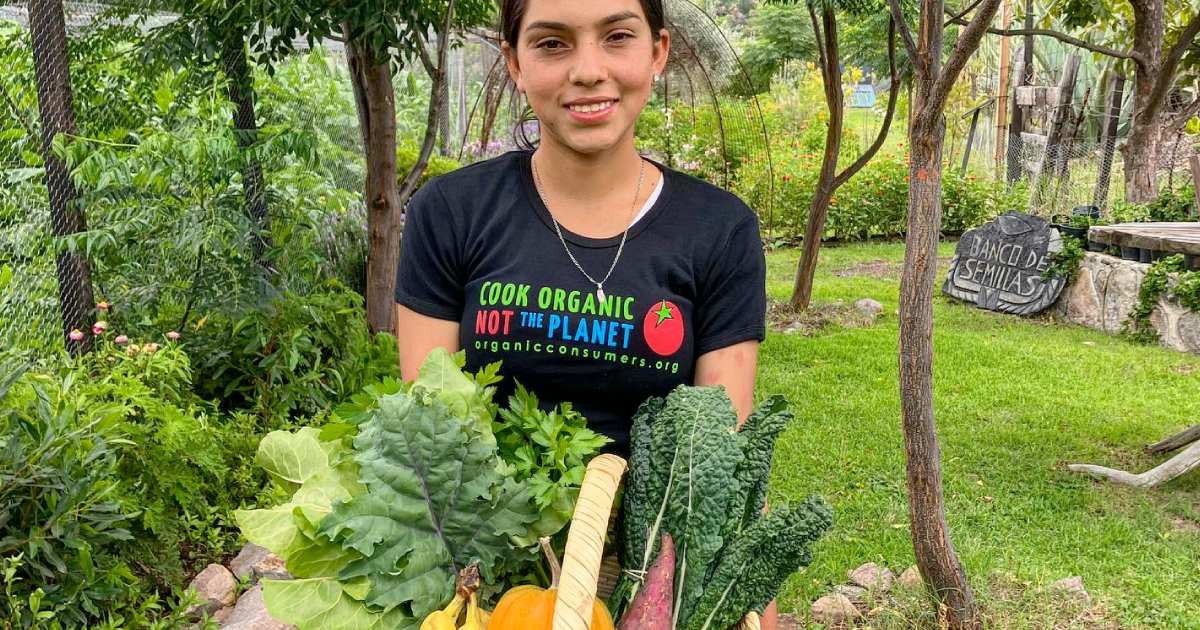
SUPPORT THE OCA
You Have the Ultimate Power
OCA was founded in 1998, when the USDA was writing the very first set of organic standards. The policy writers wanted irradiation to be allowed in organic. And sewage sludge. And GMOs.
OCA’s founders said “no way.” They organized. They collected over 200,000 comments opposing the proposed bad policies. They sent “SOS (Save Organic Standards) kits” to all the natural foods stores, whose owners and managers then distributed them to consumers.
We won those initial battles. But it didn’t end there. We’ve had to go to battle with every administration since over the integrity and enforcement of organic standards.
We are grateful for the support you have given us to help us stand up against Monsanto, corruption in the EPA and D.C. politicians whose only loyalty is to the almighty dollar.
There are multiple tools available to protect organic standards for consumers who rely on the organic seal. We intend to continue to deploy them all. Lawsuits. Lobbying. Marketplace pressure.
You, the consumer, have the ultimate power. You can reject the brands that break the rules. You can support the organic, regenerative farmers and brands that adhere to the standards. You can vote the pro-corporate policy makers out of office.
Our job is to make certain you have the information you need, so you can wield that power.
Between now and the end of January, we have a donor that has pledged to double match your donations!
Make a tax-deductible donation to Organic Consumers Association, a 501(c)(3) nonprofit
Make a tax-deductible donation to Regeneration International, our international sister organization
Order your OCA “Planting Peace” bumper stickers from our Minnesota office
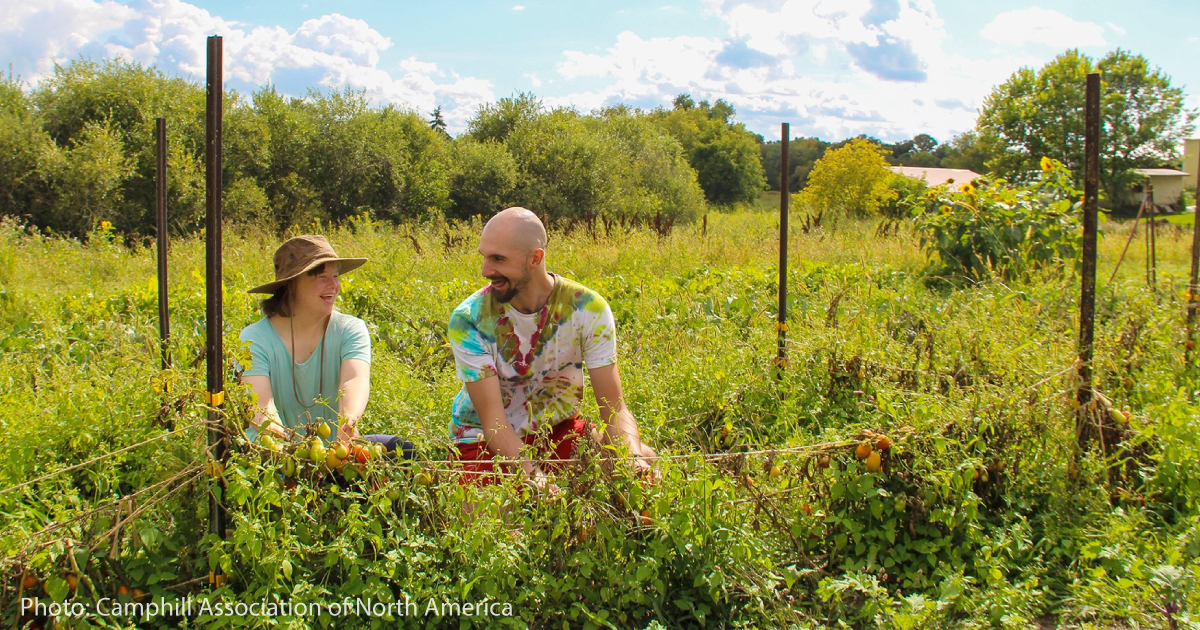
INSPIRATION
Camp Hill, An Interconnected Life
From camphill.org:
“Over the past eighty years, the international Camphill movement has grown to more than one hundred communities in twenty two countries, where people with and without intellectual and developmental disabilities live, work and care for each other based on social, spiritual, cultural and agricultural renewal.
Just like living together as a family, the connection is intimate and deep – personally, socially, spiritually, and culturally – it is a partnership in living.
A typical Camphill household includes two experienced householders, their children, two or three young volunteer coworkers, and two or three residents with disabilities. Everyone has personal space but also enjoys a strong common life.
An important part of this is shared mealtimes. Mealtimes give everyone an opportunity to share their experiences of the day, or quietly draw strength from shared food and companionship.
Good food is a big part of life in Camphill and we believe in healthy, fresh home cooking.”

CARE WHAT YOU WEAR
For Love of Linen and the Planet
By Kevin Keane, BBC
Flax: Bringing back the historic crop which could make fashion greener
“Flax was widely grown 100 years ago to make linen for garments and for ships’ sails.
But its decline was triggered by a move towards cheaper man-made fibres, which were often imported, and a shift away from sailing.
Now climate change is making linen an appealing option again as fashion houses increasingly demand natural, locally-grown fibers.
Although linen clothing can be more expensive to buy, it’s a strong and hard-wearing fibre which means it should last much longer than cotton or polyester garments.
Soil Association Scotland believes that increasing demand for linen means an entire supply chain could be developed within a decade. The trials were conceived by teams at Edinburgh College of Art, where students have been looking for low-carbon alternative fabrics.
Grower Jossie Ellis found flax to be a fast-growing and easy crop to manage, with impressive resilience. ‘It took about 20 minutes to sow about 90 square metres of bed and then we have ignored it.
It got sown during a drought. We didn’t irrigate it, we didn’t weed it. In terms of a crop that doesn’t take any additional time, this is definitely in that category,’ she said.”
Learn more: Flax: Bringing Back the Historic Crop Which Could Make Fashion Greener

LITTLE BYTES
Other Essential Reading and Videos for the Week
Eat These Fruits for Their Anti-Inflammatory Benefits
Labeling Lab-Grown Meat and Poultry Isn’t Likely To Be Easy
There’s Renewed Pressure on the FDA to Ban Synthetic Food Dye Red No. 3
Do or Dye: Synthetic Colours in Wastewater Pose a Threat to Food Chains Worldwide
Potentially Harmful Chemicals Used in Many Cosmetic Products Banned by California Governor
How a Plan To Develop Wisconsin’s Largest Pig Farm Upended a Small Town’s Politics
Slow Food USA and Seed Savers Exchange partnership unveiled on World Soil Day
Front of Mind for Michael Pollan: Psychedelics
Two Newcomers to EWG’s Dirty Dozen List of Fruits and Vegetables
Natural Cold Remedies: What Works, What Doesn’t
After 30 Years of Waiting, COP28 Deal Addresses the Elephant in the Room
EU Floods COP28 Climate Talks With Fossil Fuel Lobbyists
As Droughts Intensify, This Utah Family Farm Is Ditching the Monsanto Way
With Bison Herds and Ancestral Seeds, Indigenous Communities Embrace Food Sovereignty




